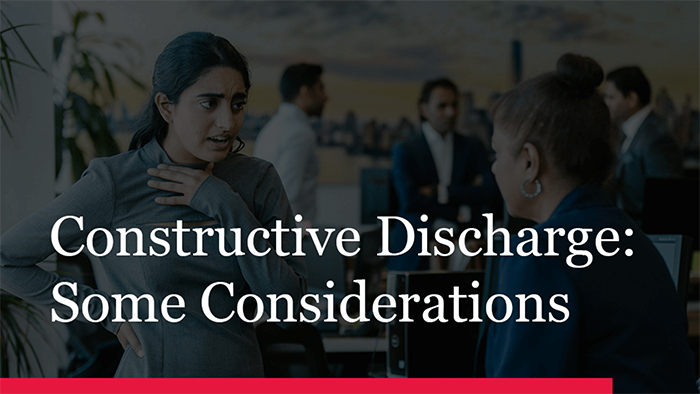Workplace conflicts are as bad, if not worse, that conflicts at home. You spend more time at work and with co-workers and managers than you do with your family, and in many instances, you have been with your employer longer than you have known your spouse. So, when you start to feel anxious about going to work, waking up each day, walking through those doors, the dread feels overwhelming. In your eyes, continuing to work under these conditions, for this supervisor, with those co-workers, is unbearable and you begin to think about quitting.
STOP. There are some things you need to consider before you quit.
You should speak with a lawyer before you take any action so you clearly understand the implications of leaving a job voluntarily. If the stressful and hostile work environment is not related to your race, sex, gender, age, disability or some other protected characteristic or being triggered in retaliation for something that you have said or done, then you may not have a claim against the employer that you need to protect. In that case, still consult with an attorney to make sure you are not waiving any potential claims, then start looking for another job and leave.
However, if you believe that you are being mistreated at work because of a protected characteristic or in retaliation because you blew the whistle about an issue, you should seek legal counsel BEFORE you quit.
When you quit you job and then sue your employer for harassment, discrimination, hostile work environment or retaliation, you are claiming that you have suffered a constructive discharge. This means that you are asserting that the work conditions were so bad that no reasonable person should be expected to have remained in the job under those circumstances. Note that this is a tough standard because it is not about whether you felt that you shouldn’t have to work under those circumstances but rather, whether an objectively reasonable person would find the facts so egregious and conclude that no one should have to work under those circumstances. In such cases, your court filing will immediately be met with a motion to dismiss as the employer tries to bar your claim before it even begins. It is only after you have satisfied this standard that will you be able to move forward with your employment claims for discrimination, harassment or retaliation.
Before you quit, you must follow the employer’s remediation procedures, usually outlined in the employee handbook. If available, you need to follow the HR process for filing your complaint internally and to allow the company to address the issue and take corrective action. Courts want to know that the employer was given the opportunity to correct the situation. This is especially true in union settings where you are required to follow a grievance procedure or exhaust other administrative remedies before raising a claim in state or federal court. If you fail to take any of these steps, it is possible that your claims against the employer may be dismissed and you may find yourself out of luck.
The Bottomline: Tread lightly here and don’t quit until you have spoken with a lawyer who can guide you on securing your claim, following the internal procedures and protecting yourself before you leave.


